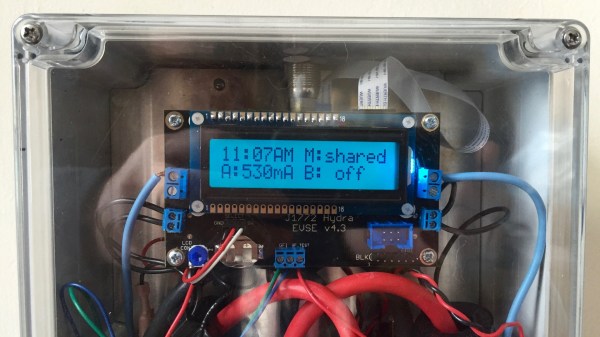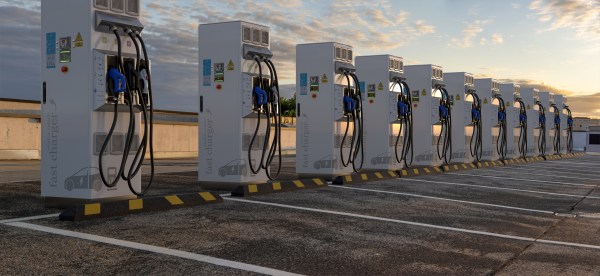There are plenty of electric vehicle (EV) chargers out there that are underutilized. This is particularly common where older EVs are involved, where the cars may only be able to charge at a few kW despite the charger being capable of delivering more. [Nick Sayer] regularly found 6.6 kW chargers being used by vehicles that could only draw down 3.3 kW at his work. Thus, he built the J1772 Hydra as a nifty double-adapter to charge two cars at once.
The Hydra comes in two versions. One is a “splitter,” which is designed to be plugged into an existing J1772 AC charger. The other is a version designed for permanent installation to an AC power supply as an EV charger in its own right. Either way, both versions of the Hydra work the same way. In “shared” mode, the Hydra splits the available AC power equally between both cars connected to the charger. When one completes, the other gets full power. Alternatively, it can be set up in “sequential” mode, allowing one car to first charge, then the other. This is great when you have two cars to charge overnight and don’t want to wake up to shift the plugs around.
It’s a neat hack that could be useful if you’re running older EVs that rely on slower AC charging. We’ve seen other DIY EV chargers before, too. Expect hacking in these areas to become more commonplace as EVs grow in popularity.












